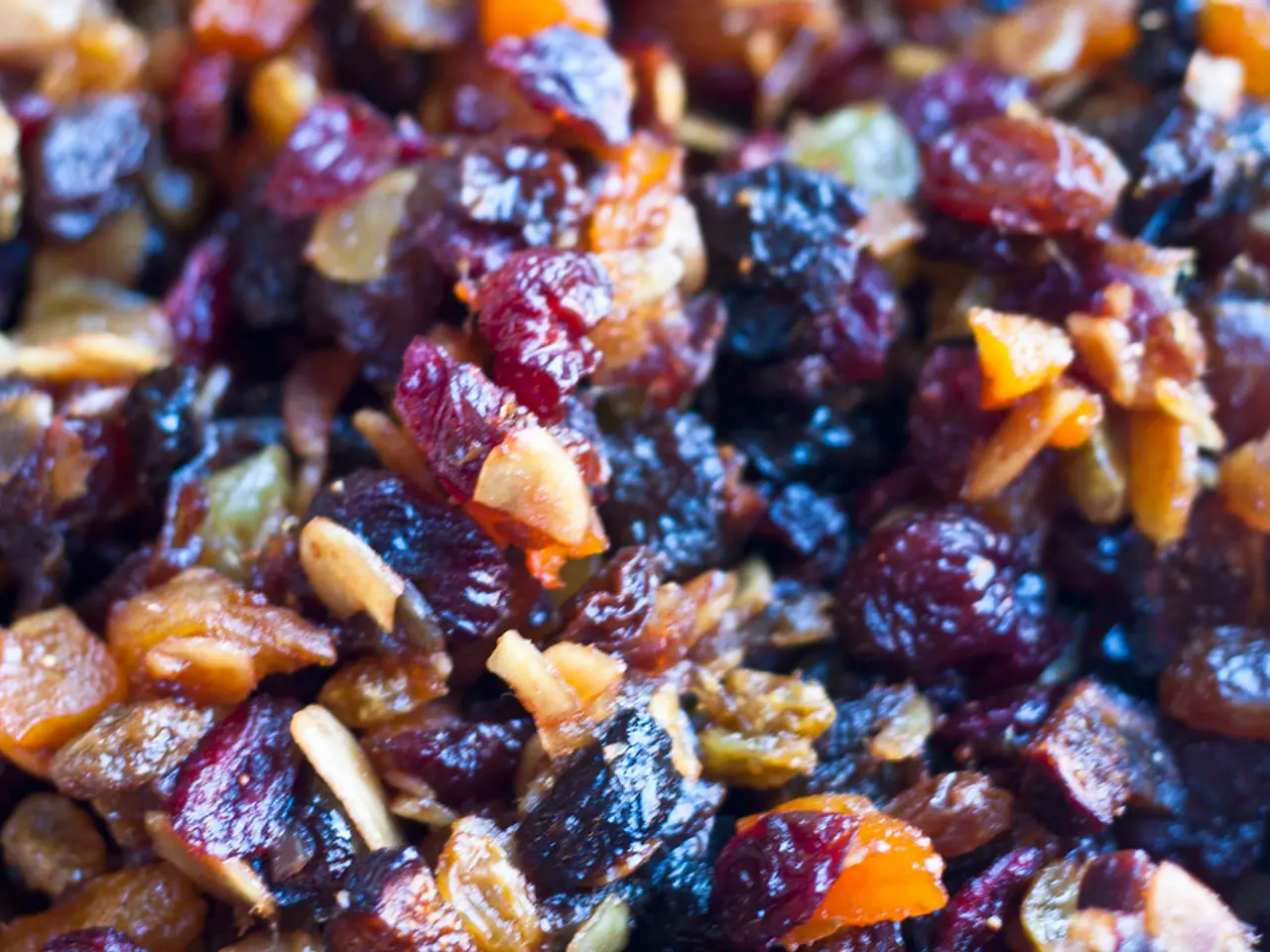Effective Nutritional Strategies to Combat Summer Fatigue
Navigating Summer Sluggishness with Sufficient Nutrition
As the heat soars, maintaining energy levels becomes crucial. Here are evidence-based strategies to help you stay energised during the summer months.
Hydration: The Foundation
Staying hydrated is key to combating summer fatigue. To prevent dehydration, which is a common cause of summer lethargy, drink water regularly throughout the day, not just when you feel thirsty.
To boost electrolytes, which are depleted through sweating, incorporate hydration supplements or natural sources such as coconut water and leafy greens into your diet, especially if you're active outdoors.
Water-rich fruits like watermelon, cucumber, oranges, and cantaloupe, and vegetables such as cucumbers, lettuce, tomatoes, and bell peppers can also support hydration from food.
Nutrient-Dense, Energy-Sustaining Foods
Complex carbohydrates like whole grains, oats, quinoa, and sweet potatoes provide slow-releasing energy, helping to avoid mid-day crashes. Lean proteins such as chicken, fish, eggs, Greek yogurt, beans, tofu, and mushrooms support sustained energy and muscle recovery. These foods also contain B vitamins and minerals critical for cellular energy production.
Regularly consume a variety of fruits and vegetables for vitamins, minerals, and antioxidants. Bananas, for example, are rich in potassium, which is crucial for muscle function and hydration.
Minimise highly processed items and opt for whole, minimally processed foods for better nutrient availability and digestive ease.
Practical Tips for Energy Maintenance
Eating smaller meals throughout the day instead of heavy portions can help maintain steady blood sugar and energy levels. Avoid heavy, fatty meals as they can increase digestive workload and make you feel sluggish, especially in the heat. Limit sugary snacks and drinks as they may cause energy spikes followed by crashes.
Incorporate foods with natural cooling properties, such as mint, cucumber, and watermelon, to help regulate body temperature.
Lifestyle Synergy
Adjust meal and snack times to avoid eating large meals during the hottest part of the day. Stay cool by using strategic cooling methods like cool showers or misting to reduce heat stress on the body. Be cautious when introducing new foods, and seek medical attention if allergic reactions occur.
Summary Table: Key Nutritional Strategies
| Strategy | Examples/Notes | Benefit | |-------------------------|-----------------------------------------------------|--------------------------------------| | Hydration | Water, coconut water, hydrating fruits/vegetables | Prevents dehydration, supports energy| | Electrolyte balance | Bananas, leafy greens, electrolyte supplements | Replenishes lost salts, aids recovery| | Complex carbs | Whole grains, oats, quinoa | Sustained energy release | | Lean proteins | Chicken, fish, beans, tofu, mushrooms | Muscle support, satiety | | Fruits & vegetables | Variety, focus on potassium-rich options | Vitamins, minerals, antioxidants | | Minimize processed foods| Choose whole, unprocessed items | Better digestion, nutrient density |
In summary, prioritise hydration and electrolyte balance, focus on nutrient-dense whole foods, and adjust eating patterns to the demands of summer heat. These strategies can effectively combat fatigue and help maintain energy levels throughout the season.
If you experience symptoms such as dry mouth, dizziness, dark-colored urine, and extreme fatigue, drink water and rest immediately. These are common signs of dehydration.
- To combat summer fatigue, adhere to evidence-based nutritional strategies focusing on hydration, electrolyte balance, complex carbohydrates, lean proteins, fruits, and vegetables.
- Drinking water, incorporating hydration supplements, and consuming water-rich fruits and vegetables helps maintain hydration and ward off dehydration, a common cause of summer lethargy.
- Incorporate foods like bananas, leafy greens, and lean proteins to replenish electrolytes and maintain energy levels throughout the day.
- A balanced lifestyle that includes nutrient-dense foods, frequent small meals, and strategies to reduce heat stress can effectively combat fatigue and maintain energy during the summer months.




